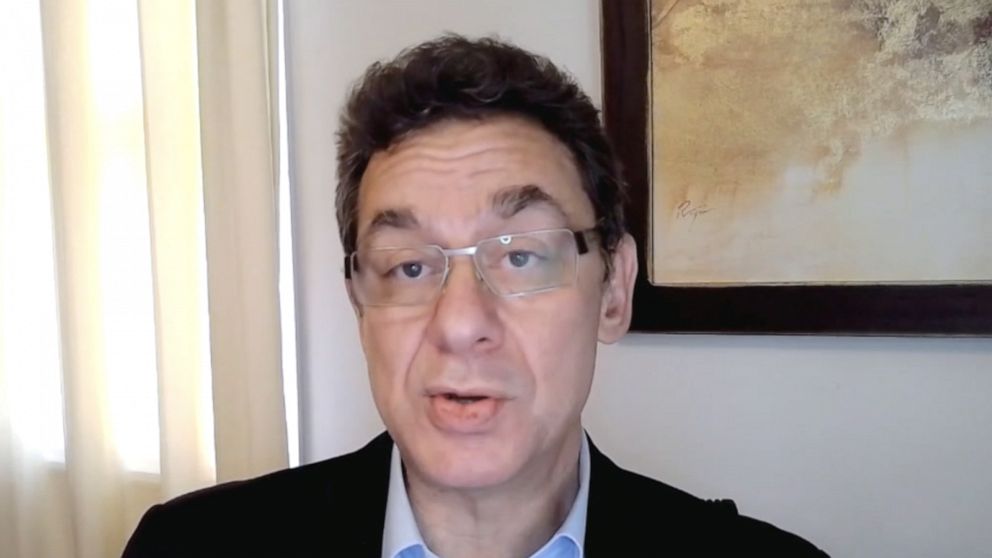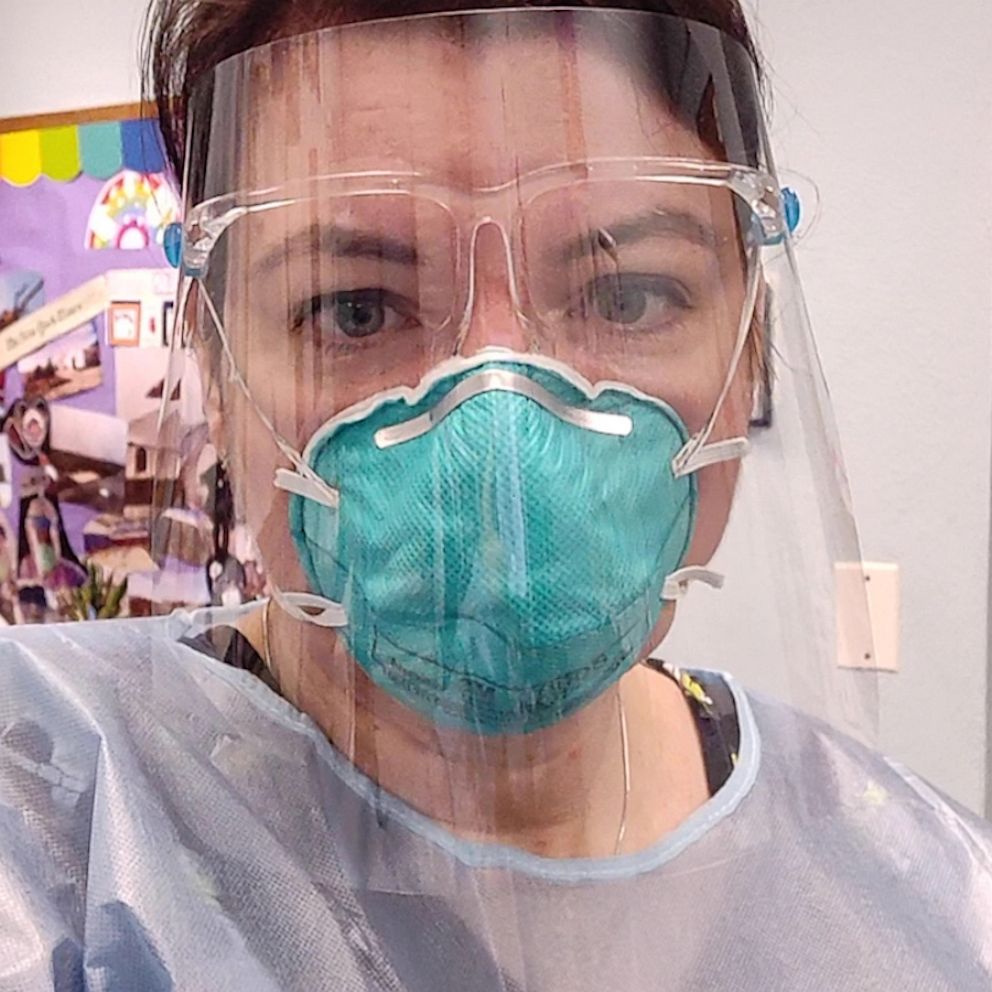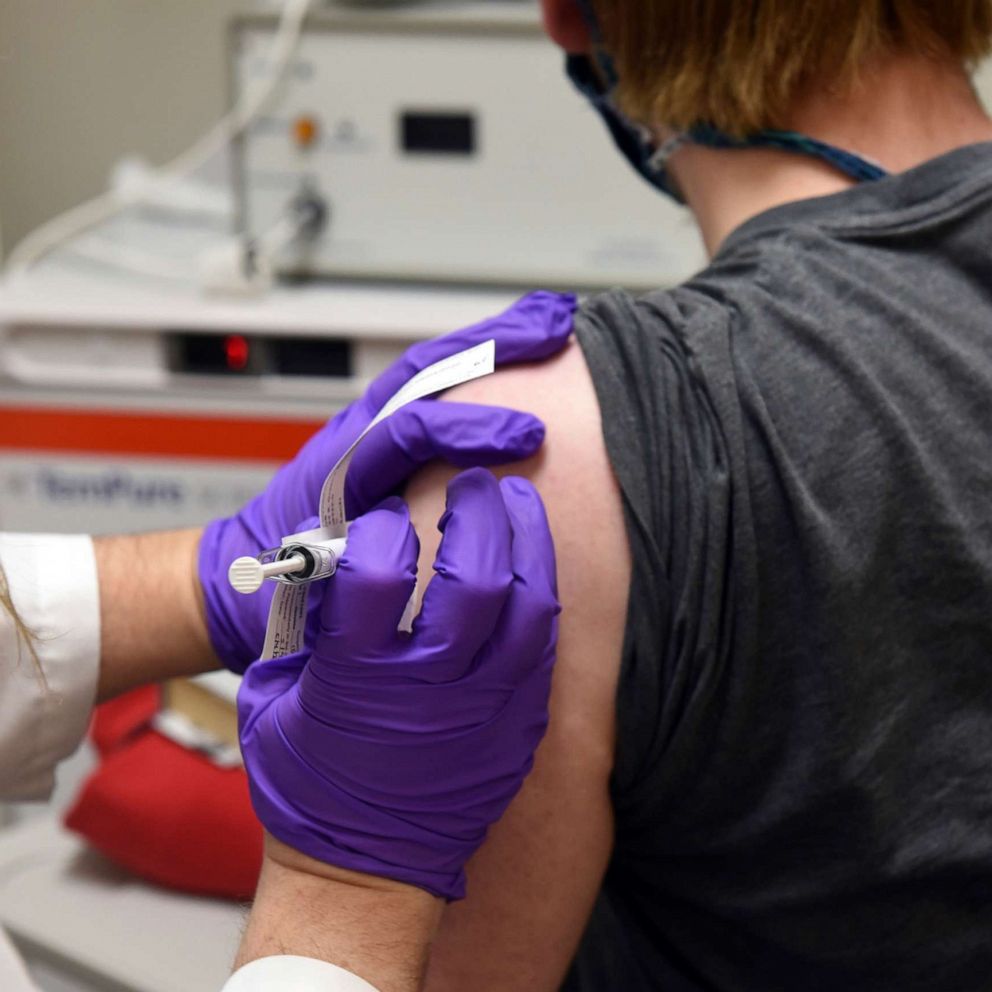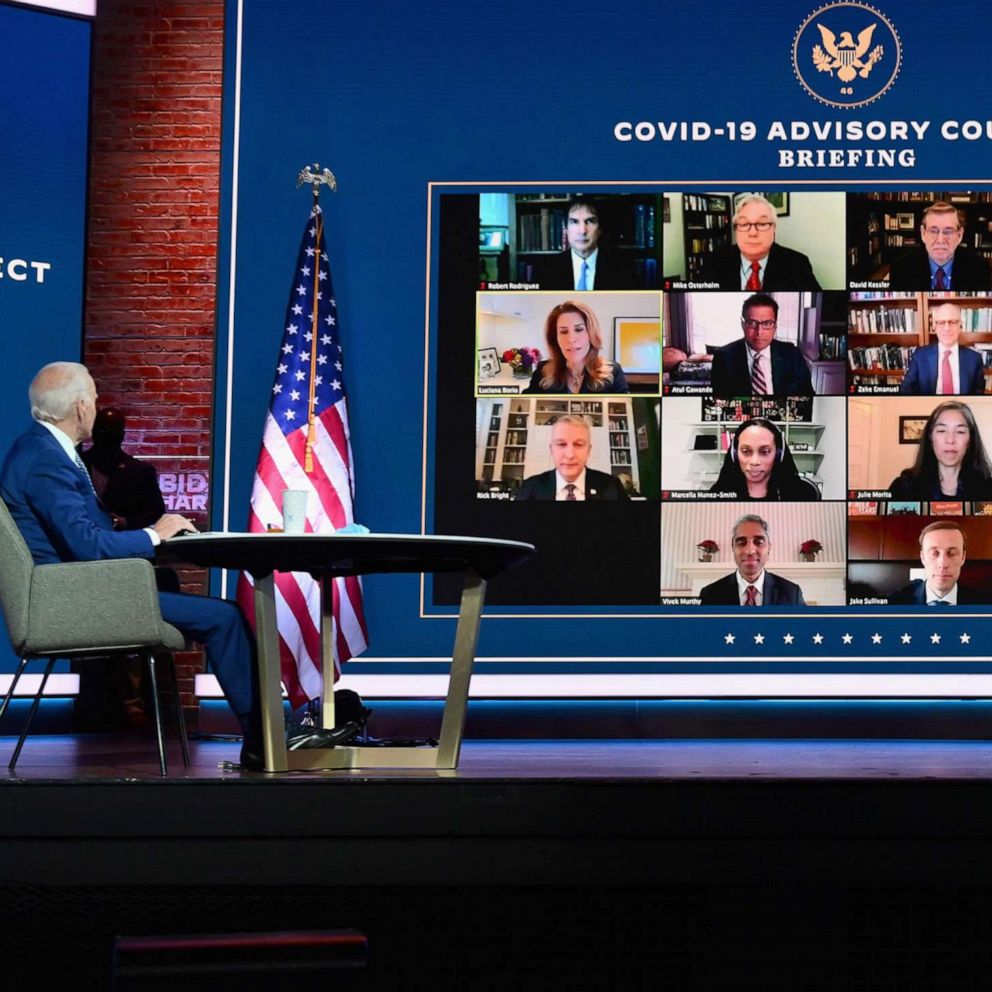Pfizer CEO on coronavirus vaccine: 'We feel very good about the safety'
Pfizer CEO Dr. Albert Bourla joined “GMA3: What You Need To Know” Monday to discuss the drug-maker's coronavirus vaccine after early analysis shows it to be 90% effective at preventing COVID-19.
"The vaccine was proven to be very efficacious, overwhelmingly,” Bourla said. “That was big news for me as well. We feel very good about the safety.”
The company, along with co-developer BioNTech, published safety data reviewed by an independent data-monitoring board over the weekend that found 94 COVID-19 infections in a study that enrolled nearly 44,000 people, which Bourla called “among the very good that we’ve seen in any vaccine so far.” Some participants got the vaccine while others received a placebo shot.
Dr. Anthony Fauci, the nation’s top-infectious disease expert, said the results suggesting 90% effectiveness are “just extraordinary," adding, "Not very many people expected it would be as high as that.”
“It’s going to have a major impact on everything we do with respect to COVID,” Fauci said.
Earlier this year, Fauci said he would be happy with a COVID-19 vaccine that was 60% effective. Scientists have warned for months that any COVID-19 shot may be only as good as flu vaccines, which are about 50% effective and require yearly shots.
In a press release, Pfizer said it plans to seek emergency use authorization from the Food and Drug Administration once volunteers have been monitored for two months after getting their second dose of the vaccine, in accordance with guidelines by the FDA.
When asked about the public’s growing mistrust in rapid vaccine development, Bourla argued the pharmaceutical giant has been “extremely transparent” in publishing vaccine trial protocols and data before blaming politicians for stoking distrust.
“There is a lot of skepticism among individuals, among relative citizens of America that, frankly, they’re confused,” Bourla said. “I think the main reason for that is because instead of having scientists debating the merits of this vaccine, we had the politicians. This didn’t help at all.”
Bourla went on to highlight Pfizer’s decision not to partake in the Trump administration’s Operation Warp Speed.
“It’s not that we are arrogant or we believe that we can do it alone,” Bourla said. “And it’s not also that we don’t need the money. It’s a very big investment. But Pfizer did and it was a very difficult decision for me. The reason why I did it was because I wanted to liberate our scientists from any bureaucracy that could come by accepting money.”
Bourla added if the vaccine proves successful, he expects each dose to cost $20.







